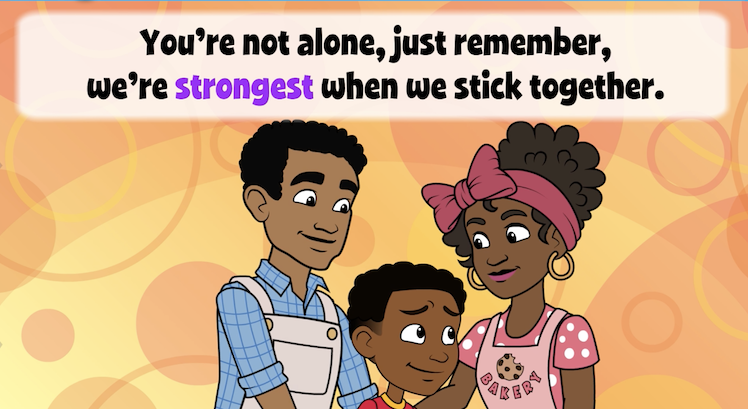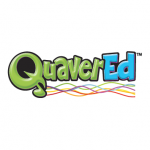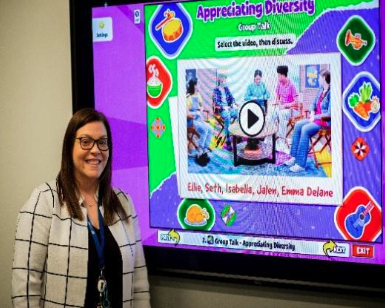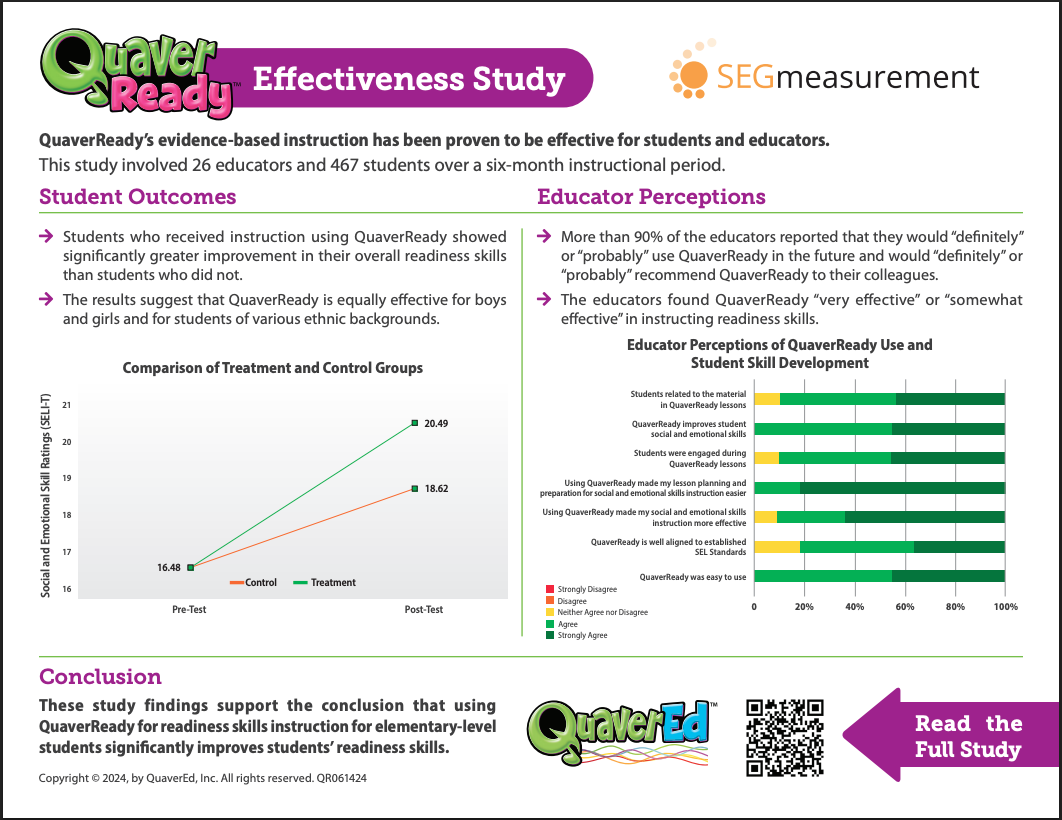“These are life skills and coping skills … and they belong to all of us.”
By Kristin Clark Taylor
Collaboration is Key
Heather Eskridge, a school counselor at Northfield Elementary in Murfreesboro, Tennessee, certainly understands the importance of collaboration.
Eskridge speaks passionately about the principles of shared responsibility and collective accountability as a way to ensure that our young people feel seen, heard, and valued.
When it’s time to put these powerful principles into practice, Eskridge reaches for the resource she trusts first and foremost: QuaverReady.
“QuaverReady helps make learning a family affair,” she says with gratitude.
“These resources are as helpful to parents as they are to educators, which is why I send material home often – and the parents are always appreciative.”
Creating a collaborative environment, “sends a message to our young people that they are not alone. It makes them feel less vulnerable,” she says.
When Crisis Strikes, QuaverReady is Ready!
A child doesn’t have quite as much “brain power” to process intense emotions like sadness or fear, Eskridge explains.
“Quaver’s grief resources are excellent and I rely on them often, because grief is a family affair, too,” she says. “Everyone is affected by loss and death; the entire family feels these kinds of situations.”
Eskridge points to “When Bad Things Happen” as a highly effective counseling tool that helps her address adversity and challenge with her students.
“The song works so well because the lyrics never try to define what ‘bad’ might be, because it’s different for every person,” she says. “This allows everyone to relate on a deeper personal level.”
But Eskridge is also quick to point out that QuaverReady offers more than great songs and colorful characters:
“The units and lessons are certainly engaging and fun, but this is much more than just entertainment.”
“QuaverReady also embeds the practical tools and coping strategies that students need to navigate through difficult life situations.”
She points to an example.
“One of my students had a bit of a melt-down recently while dealing with some pretty significant anger,” she recalls.
“What was interesting was that he actually asked to do some of the breathing exercises we’d just learned, and the breathing helped him deescalate his own anger.”
The meltdown moment became a learning opportunity for the other students as well, because it demonstrated that emotions can be managed if we know how to reach for the right tools — “and providing the right tools is where Quaver really excels.”
When working through strong emotions such as anger and frustration, Eskridge has an all-time favorite: “Anger’s Not the Boss of Me.”
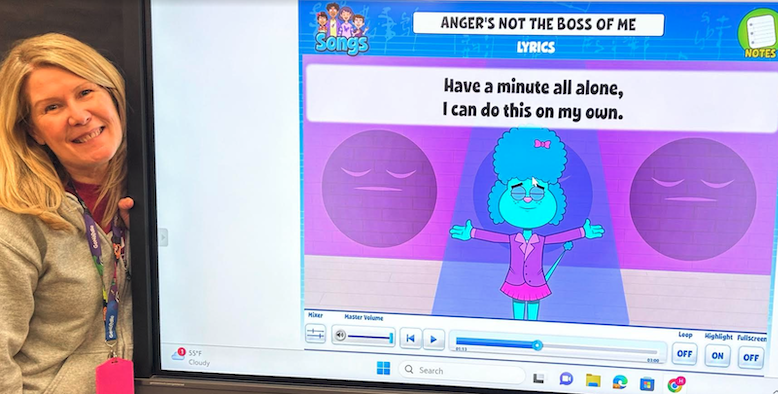
“My students just love Francine the Angry Poodle because she offers practical tools for processing anger.”
“Again, this is not just a song about anger,” she says. “What’s also embedded are skills and strategies for how to deal with and move through that anger. These are life skills and coping skills … and they belong to all of us.”
She offers yet another example of how QuaverReady stood ready to help during crisis: Coping during COVID.
At the height of the pandemic – when anxiety was high, fear was real, and classrooms were closed – Eskridge recalls how QuaverReady helped bring calm to the chaos.
“I couldn’t imagine having lived through the COVID lockdown without Quaver,” she says. “But with Quaver … we had everything we needed.”
The benefits of this curriculum, however, endure long after the crisis or challenge has been resolved.
“QuaverReady provides sustainable tools for living a well-balanced life.”
Want these sustainable tools in your classroom? Go to www.quavered.com/ready.
Kristin Clark Taylor is an author and a journalist.
***
